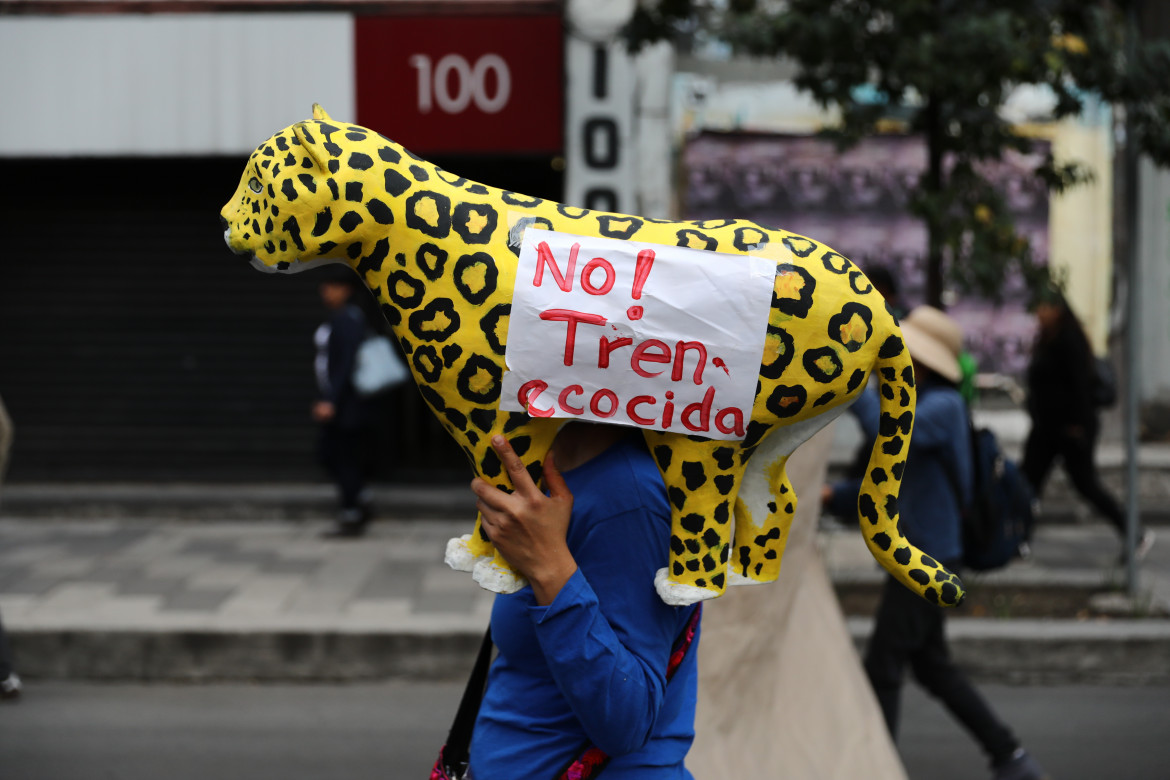Analysis
AMLO’s treason: Mega-projects over indigenous communities
President López Obrador promised to protect the environment and consult indigenous communities. He has done neither for the Tren Maya project, which is rejected by local communities.

The Zapatistas have never trusted Andrés Manuel López Obrador, known as AMLO: “The foreman, the servants and the supervisors might change, but the owner will keep being the same,” they warned, while the majority of the population celebrated his electoral triumph over two years ago. And the facts are proving them right.
It’s difficult to find traces of the much-touted “fourth transformation,” particularly in the realization of projects as ambitious as they are devastating, strongly opposed by the communities concerned, such as the Tren Maya, the mega railway project aiming to connect the main tourist areas of the south of the country, or as the Corredor Transístmico, which provides for the construction of six industrial and agro-industrial parks, the adaptation of the current railway line and the construction of a highway corridor in parallel, or as the Proyecto Integral Morelos, the international airport of Santa Lucía or the Dos Bocas refinery.
All of these projects belie the president’s solemn environmentalist proclamations in the most jarring way. López Obrador said on September 1: “Out of conviction, we have decided to take care of the environment in a way that previous governments have never done and in a way that the pseudo-ecologists who are attacking us so much are not even asking for”—meaning those defenders of the environment whom the president is calling “left-wing radicals who are nothing but conservatives.”
In reality, there is nothing new, nor environmentally sustainable, in the illegitimate and fraudulent processes of indigenous consultation—anything but “prior, free and informed” as required by Convention 169 of the International Labor Organization—on which the government is relying to justify the building of its mega-projects. Nor in the promises made and broken, such as regarding the Proyecto Integral Morelos, which, started in 2010 during the government of Felipe Calderón, provides for, among other things, the construction of a thermoelectric power plant in the community of Huexca, an aqueduct and a gas pipeline that should pass through the slopes of the Popocatépetl volcano, despite its constant seismic activity.
It is an enormous energy project involving the states of Puebla, Morelos and Tlaxcala, including Spanish companies as well as the Italian company Bonatti. And according to AMLO now, it’s no longer possible to go back on it, despite the fact that during the electoral campaign he had pledged to shelve it, because, as he said back then, it would be like building “a nuclear power plant in Jerusalem.”
Not even the assassination of Samir Flores Soberanes, the Náhuatl activist of the National Indigenous Congress—shot dead on February 20, 2019 precisely on account of his fight against that project—managed to change his mind.
How the president has decided to move forward became clear on November 23, from the eviction, in the middle of the night, by 300 officers of the National Guard together with 100 agents of the state and municipal police, of the Zapatista protesters at San Pedro Apatlaco, which for four years had been blocking the work of constructing the plant, which is set to contaminate the waters of the Río Cuautla.
This took place despite the 19 pending appeals presented by the Peoples’ Front in Defense of the Land and Water of Morelos, Puebla and Tlaxcala, which didn’t hesitate to call the president a traitor and a liar. It is not true, they say, that the plant would meet the energy needs of the country, since “Mexico already has an electrical generation capacity that is 40% higher than what it needs.” Nor is it true that the project will produce more employment, considering that “the plant will create about 30 permanent jobs, compared to more than 15,000 farmers and laborers who depend on the water of the Río Cuautla.” “With this mega-project,” concludes the Front, “López Obrador is betraying what he had announced as the slogan of his government: ‘The poor first’.”
And the interests of big capital, not those of the poor, are at stake in the project known as Tren Maya, whose name itself is contested by the indigenous communities, since it was certainly not the Mayan people who wanted it. On the contrary, they are raising the alarm about the environmental impact that the work would have on the entire Mexican southeast, compromising the natural ecosystems and cultural heritage of the five states affected by the work (Chiapas, Tabasco, Campeche, Yucatán and Quintana Roo).
“Far from favoring the development of the original peoples, this mega-project will lead, as it is already doing, to exponentially increasing the privatization of the social property over the land,” denounced 16 indigenous and peasant organizations, stressing that the cheap labor provided by the local communities “will serve no other purpose than the enrichment of those same construction companies.”
In the long fight waged against the government through legal challenges, the indigenous communities of Campeche, Yucatán and Quintana Roo have scored an important victory, obtaining the suspension of the works on the second section of the Tren Maya, from Escárcega to Calkiní, at Campeche. The measure actually caused a stop of the works planned in Phase 1 of the project—with the destruction of 800 hectares of forest—whose environmental impact assessment had already been approved by the Secretariat of Environment and Natural Resources, which seemed persuaded that the development of the project, which will cross through 23 protected areas, does not compromise “the functional integrity of ecosystems in the regional environmental system,” nor generate “significant environmental impact.”
However, the struggle of indigenous communities against the mega-projects—the most aggressive face of the predatory extractive model pursued by the government of López Obrador—does not seem to be having much effect on the popularity of the president, who, two years after taking office, still enjoys an approval rate of 60%.
Originally published at https://ilmanifesto.it/in-messico-il-tren-maya-fa-deragliare-amlo/ on 2020-12-10
